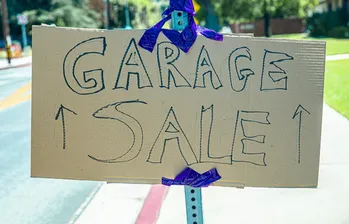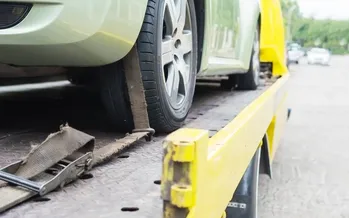Introduction
Definition and purpose of garage sales: A garage sale is an event where a person or family sells their unwanted items to the public, usually from their own home or garage, in order to declutter, earn some extra cash, or simply get rid of things they no longer need or want. It's a great way to make room for new possessions while also clearing out the old and unused.
Benefits of hosting a garage sale: Hosting a garage sale can be beneficial in several ways such as: generating income, getting rid of clutter, promoting recycling and reusing, and providing an opportunity for socializing and meeting new people.
Planning your Garage Sale
Choose the date and time for the sale: When planning a garage sale, it's crucial to choose a good date and time that will attract as many potential customers as possible. Weekends are usually the best days to have a garage sale, as most people are free on weekends. It's also important to select a time when the weather is nice and comfortable for outdoor activities.
Plan what items to sell
When deciding what items to sell at your garage sale, it's important to consider the condition of each item, its value, and whether it will appeal to potential buyers. Items such as clothes, books, toys, furniture, electronics, appliances, and household goods are popular among customers.
Prepare and organize your goods
Once you have decided what items to sell, it's time to prepare and organize them. Price each item appropriately, categorize items by type or genre, and arrange them in a visually appealing way that will attract customers. It's also important to make sure everything is clean and well-presented.
Advertise the sale
Advertising your garage sale is crucial for its success. You can advertise it on social media platforms such as Facebook or Instagram, use local newspapers or community bulletin boards, or create flyers to distribute in your neighborhood.
Organize the garage sale layout
The layout of your garage sale is just as important as the items you're selling. Make sure to create a clear path for customers to walk through and make sure all the items are visible and easily accessible. Additionally, use signs to direct traffic flow and guide customers to specific sections of the sale.
Executing Your Garage Sale
Setting up on sale day
On the day of the sale, it's crucial to set everything up early in order to attract as many customers as possible. Make sure everything is organized and displayed properly, and that all prices are clearly visible. It's also important to have enough change on hand and make sure you have a safe place to store any cash received.
Pricing your merchandise
When pricing items at your garage sale, it's important to consider the value of each item and its condition. You should aim for prices that are fair but still allow you to make a profit. It's also helpful to have a variety of price points to cater to different customers.
Managing customers
Throughout the day, you will likely encounter a variety of customers with different needs and wants. It's important to be patient and courteous towards all customers while still maintaining control over your sale. Be prepared to negotiate prices if necessary and remember that customer satisfaction is key to a successful garage sale.
Handling cash transactions
When handling cash transactions, it's crucial to always have enough change on hand and make sure your cash is stored in a secure location. It's also important to keep track of all sales and be able to provide customers with receipts if requested.
Closing the Garage Sale
Settling up accounts and profits
Once your garage sale is over, it's time to settle up accounts and calculate your profits. Make sure to tally up all the sales and compare them with the total amount of cash received to ensure there are no discrepancies. Additionally, make sure to keep track of any expenses incurred during the sale, such as advertising or supplies.
Cleaning up after the sale
After closing up your garage sale, it's important to clean up any mess that may have been made during the day. Sweep or vacuum the floor, put away any items that were not sold, and dispose of any trash. It's also a good idea to organize any remaining items for future sales.
Tips for organizing future sales
If you enjoyed hosting your first garage sale and want to host more in the future, there are several tips to keep in mind. Consider changing up the inventory each time, investing in better signage or advertising methods, and collaborating with neighbors or friends to host a joint sale.
FAQs about Hosting a Successful Garage Sale
Q: What is a garage sale?
A: A garage sale is an event where a person or family sells their unwanted items to the public, usually from their own home or garage, in order to declutter, earn some extra cash, or simply get rid of things they no longer need or want.
Q: What are the benefits of hosting a garage sale?
A: Hosting a garage sale can be beneficial in several ways such as: generating income, getting rid of clutter, promoting recycling and reusing, and providing an opportunity for socializing and meeting new people.
Q: When is the best time to host a garage sale?
A: Weekends are usually the best days to have a garage sale, as most people are free on weekends. It's also important to select a time when the weather is nice and comfortable for outdoor activities.
Q: What items should I sell at my garage sale?
A: Items such as clothes, books, toys, furniture, electronics, appliances, and household goods are popular among customers. When deciding what items to sell, it's important to consider the condition of each item, its value, and whether it will appeal to potential buyers.
Q: How do I advertise my garage sale?
A: You can advertise your garage sale on social media platforms such as Facebook or Instagram, use local newspapers or community bulletin boards, or create flyers to distribute in your neighborhood.
Q: What is the best way to organize my items for a garage sale?
A: Organize items by type or genre, and arrange them in a visually appealing way that will attract customers. It's also important to make sure everything is clean and well-presented.
Q: How do I handle cash transactions at my garage sale?
A: When handling cash transactions, it's crucial to always have enough change on hand and make sure your cash is stored in a secure location. It's also important to keep track of all sales and be able to provide customers with receipts if requested.
Conclusion
Recap of key points: In conclusion, hosting a successful garage sale requires careful planning, organization, and execution. By choosing a good date and time, preparing and organizing your items, advertising effectively, and managing customers properly, you can make the most out of your garage sale experience while also decluttering and making some extra cash. Remember to always be patient, courteous, and prepared for any potential challenges that may arise during the day.











